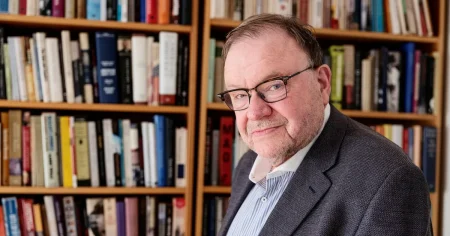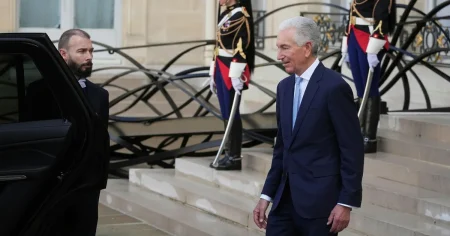The Rise and Fall of Bashar al-Assad: From London Eye Doctor to Syrian Dictator
Bashar al-Assad’s journey from a seemingly unassuming ophthalmologist in London to a ruthless dictator in Syria is a story of unexpected turns, broken promises, and ultimately, devastating consequences. Growing up under the shadow of his powerful father, Hafez al-Assad, who seized power in a 1970 coup, Bashar initially pursued a career far removed from the tumultuous world of Syrian politics. He studied ophthalmology in London, where he met his future wife, Asma Akhras, a British-Syrian investment banker. His early life portrayed a man of intellect and quiet demeanor, contrasting sharply with the iron-fisted rule he would later embody. At the time, his only official role in Syria was as head of the Syrian Computer Society, hinting little at the political future that awaited him.
The unexpected death of his older brother, Bassel, in a car accident abruptly altered Bashar’s trajectory. Summoned back to Syria, he underwent military training and was groomed to succeed his father. Upon Hafez al-Assad’s death in 2000, the Syrian parliament swiftly lowered the presidential age requirement, paving the way for Bashar’s uncontested ascension to power. Initially, his presidency was met with cautious optimism in the West, fueled by his promises of reform and modernization. He released political prisoners, eased media restrictions, and encouraged a more open political dialogue. Economic liberalization followed, with foreign banks entering the Syrian market and the private sector gaining momentum. Shopping malls and restaurants flourished, and tourism saw a significant uptick, creating an illusion of progress and stability.
However, the veneer of reform quickly faded. Within a year, the leaders of the Damascus Spring, a movement advocating for democratic reforms, were imprisoned, signaling a decisive shift towards authoritarianism. Despite initial hopes for genuine political change, Bashar’s actions revealed a focus on economic and social modernization while maintaining a firm grip on political power. He adhered to his father’s foreign policy, maintaining alliances with Iran and militant groups like Hamas and Hezbollah. This period of deceptive calm foreshadowed the brutal crackdown that would define his rule.
The eruption of the Arab Spring in 2011 presented a critical juncture. Faced with widespread protests against his regime, Assad responded with swift and brutal repression. Within months, thousands were killed or imprisoned, plunging Syria into a bloody civil war. The conflict escalated into a humanitarian catastrophe, resulting in the world’s largest refugee crisis, with over 14 million Syrians displaced from their homes. Reports of atrocities committed by the Assad regime, including the use of chemical weapons, torture, and mass executions, shocked the international community. His early attempts to appease the opposition with superficial reforms proved futile in the face of escalating demands for genuine change.
Throughout the conflict, Assad relied heavily on the support of Russia and Iran. Russian airstrikes played a crucial role in suppressing the rebellion, while Iranian ground forces bolstered the Syrian military. For a time, this external support enabled Assad to maintain control, but the relentless pressure from rebel forces eventually proved overwhelming. The fall of Aleppo in late November 2023, followed by a series of rebel victories, marked the turning point and signaled his eventual downfall. His regime’s collapse and subsequent flight to Russia, where he was granted asylum, brought an end to his decades-long rule.
Assad’s legacy is one of brutal repression and devastating conflict. His transformation from a seemingly moderate reformer to a ruthless dictator underscores the complexities of power and the fragility of hope in a volatile region. His current status as a political exile in Russia marks a stark contrast to the absolute power he once wielded. While his future remains uncertain, his past actions have indelibly marked him as one of the most controversial figures of the 21st century. The Syrian people, meanwhile, face the daunting task of rebuilding their shattered nation and navigating a future burdened by the devastating consequences of Assad’s rule.














